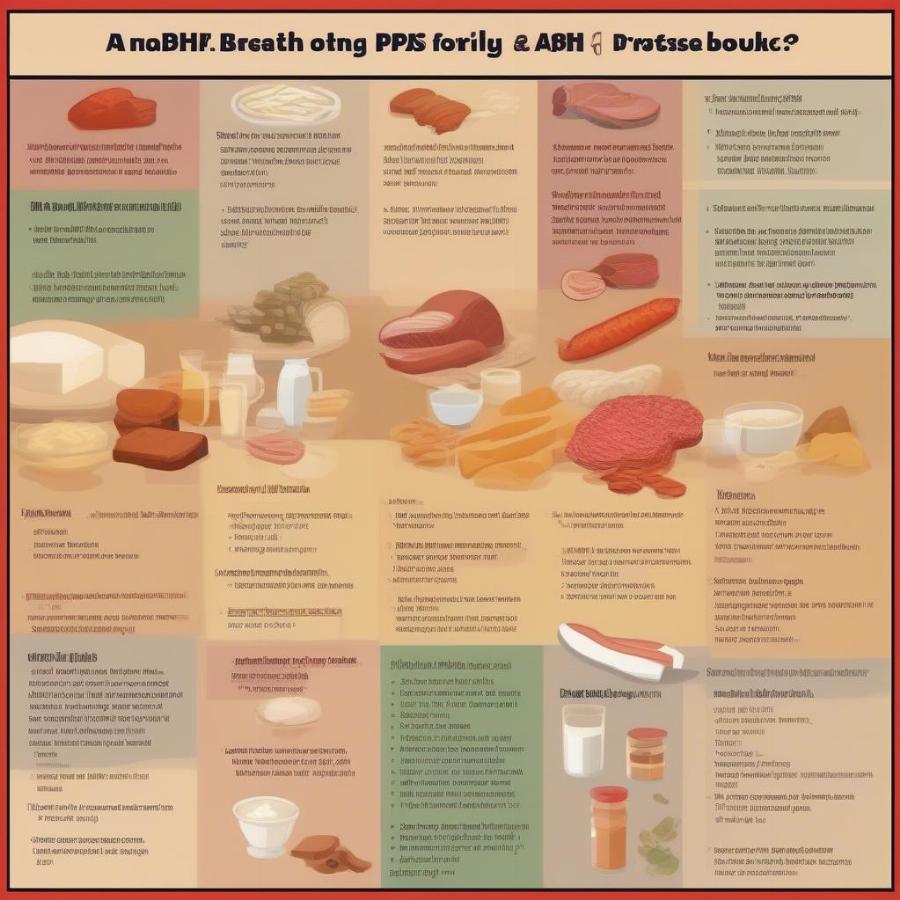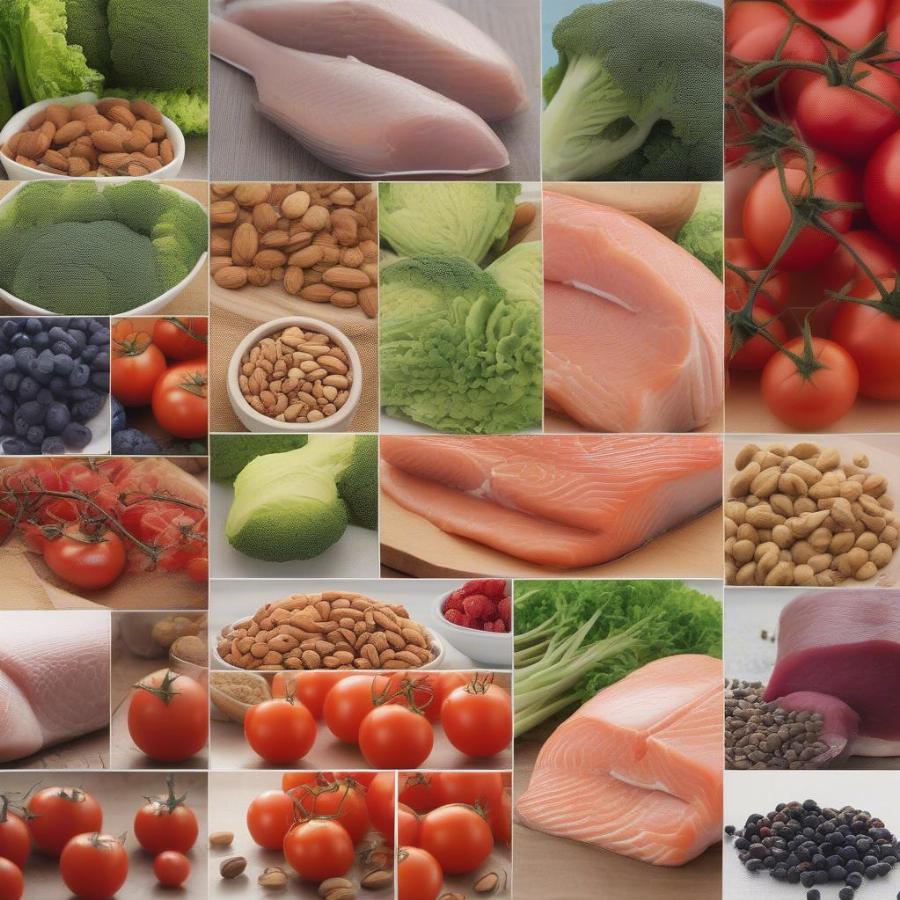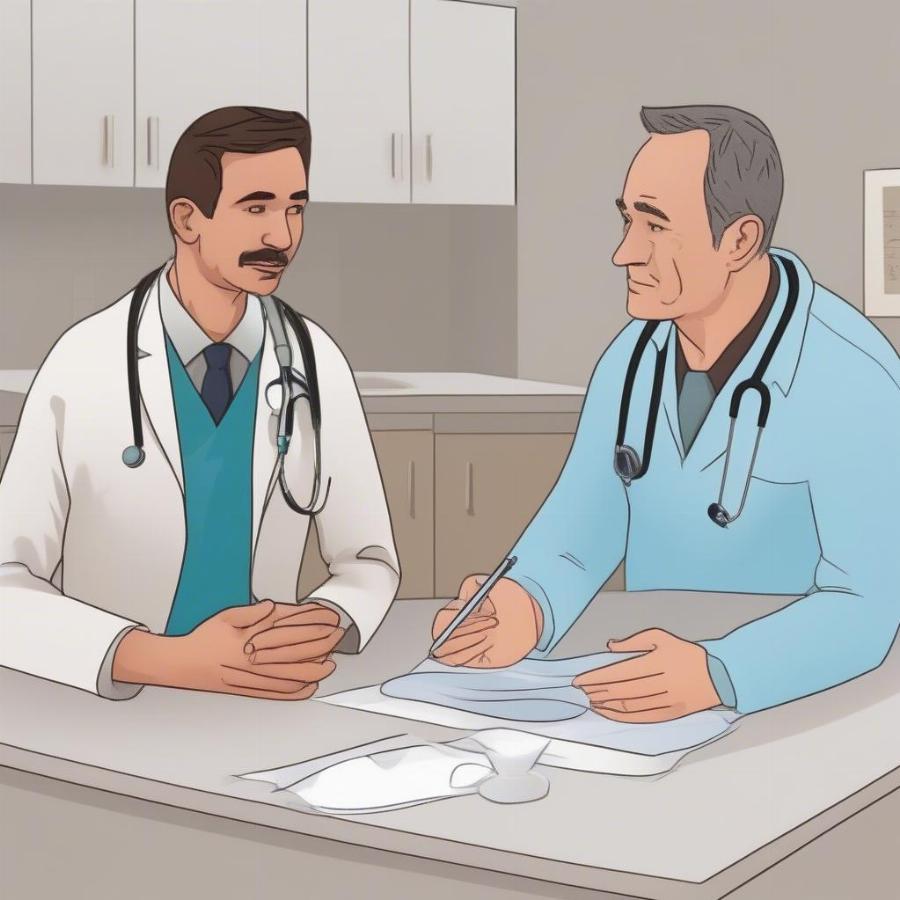Foods to Avoid with Enlarged Prostate: A Guide to Nutritional Choices

Enlarged prostate, also known as benign prostatic hyperplasia (BPH), can significantly impact a man’s quality of life. While medical treatments are available, dietary choices can play a crucial role in managing symptoms. Understanding which Foods To Avoid With Enlarged Prostate can help alleviate discomfort and promote prostate health.
Understanding the Link Between Diet and BPH
The prostate gland, a small gland located below the bladder, plays a vital role in male reproductive health. As men age, the prostate can enlarge, leading to various urinary problems. Certain foods can exacerbate BPH symptoms, while others can support prostate health. By making informed dietary choices, men can actively manage their BPH and improve their overall well-being. For a broader look at men’s health solutions, see male health solutions.
Foods to Limit or Avoid with Enlarged Prostate
Several food groups can contribute to BPH symptoms and should be consumed in moderation or avoided altogether. These include:
Dairy Products
High consumption of dairy products, especially full-fat milk, cheese, and yogurt, has been linked to an increased risk of BPH and worsening symptoms. Saturated fats in dairy may contribute to inflammation and prostate growth. Consider opting for low-fat or dairy-free alternatives.
Red and Processed Meats
Red meat (beef, pork, lamb) and processed meats (sausages, bacon, deli meats) are high in saturated and unhealthy fats. These fats can promote inflammation and potentially exacerbate BPH symptoms. Choosing lean protein sources like fish and poultry is a healthier alternative.
Spicy Foods
Spicy foods containing capsaicin, the compound that gives chili peppers their heat, can irritate the bladder and urethra, leading to increased urinary urgency and frequency. While not directly causing BPH, spicy foods can worsen existing symptoms. What other conditions can impact prostate health? Learn more about low testosterone and low vitamin d.
Caffeine and Alcohol
Both caffeine and alcohol can act as diuretics, increasing urine production and potentially worsening urinary frequency and urgency. Limiting intake of coffee, tea, soda, and alcoholic beverages can help manage BPH symptoms.
Sodium-Rich Foods
High sodium intake can contribute to fluid retention and increase blood pressure, potentially impacting prostate health. Reducing salt in your diet can benefit overall health and potentially alleviate some BPH symptoms. A deeper understanding of enlarged prostate is essential for effective management.

What can I eat if I have an enlarged prostate?
Focus on incorporating a variety of fruits, vegetables, whole grains, and lean protein sources into your diet. These foods provide essential nutrients and antioxidants that support overall health, including prostate health.
Beneficial Foods for Prostate Health
Certain foods can positively impact prostate health and may help manage BPH symptoms. These include:
- Fatty fish: Rich in omega-3 fatty acids, which have anti-inflammatory properties.
- Tomatoes: Contain lycopene, an antioxidant linked to improved prostate health.
- Cruciferous vegetables: (broccoli, cauliflower, cabbage) Contain compounds that may protect against prostate cancer.
- Berries: Rich in antioxidants that combat oxidative stress and inflammation.
- Nuts and seeds: Provide healthy fats, fiber, and essential nutrients.

Dr. Michael Anderson’s Perspective
“Managing BPH often involves a multi-faceted approach,” says Dr. Michael Anderson, a leading urologist. “Dietary adjustments play a significant role in alleviating symptoms and improving a patient’s quality of life.” He further emphasizes the importance of incorporating a balanced diet rich in fruits, vegetables, and lean proteins while limiting foods known to exacerbate BPH.
Seeking Professional Advice
While dietary changes can contribute significantly to managing BPH symptoms, it’s crucial to consult with a healthcare professional. They can provide personalized advice, diagnose the condition accurately, and recommend appropriate treatment options, including medication or surgery. Exploring enlarged prostate treatment options can provide a clearer understanding of the available medical interventions. Furthermore, Dr. Anderson advises against self-treating and emphasizes the need for professional guidance in managing BPH.
“Remember, dietary modifications are not a replacement for medical treatment,” adds Dr. Anderson. “They are a valuable complement to a comprehensive management plan tailored to each individual’s specific needs.”

Conclusion
Understanding which foods to avoid with enlarged prostate is a critical step towards managing the condition and improving your quality of life. By making informed choices and adopting a healthy lifestyle, you can actively contribute to your prostate health. Remember to consult with a healthcare professional for personalized guidance and to explore available treatment options for foods to avoid with enlarged prostate. Don’t hesitate to discuss your dietary concerns with your doctor to develop a plan that works best for you. For further information on this topic, refer to our guide on foods to avoid with enlarged prostate.




